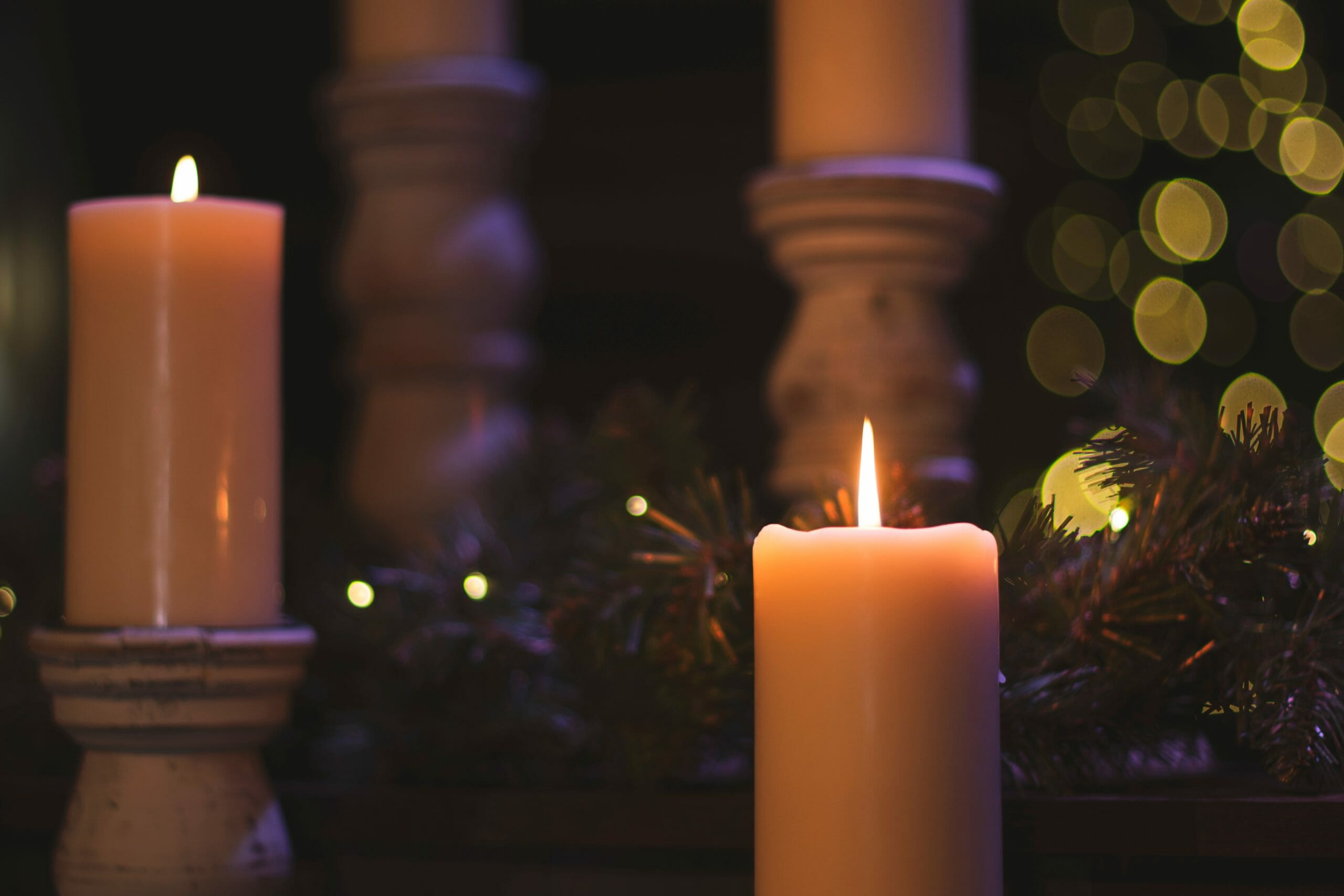
Why we light those candles

Rev. Dr. Corey Fields
December 1, 2020
Years ago, we had an artificial and pre-lit Christmas tree that had gotten to the point where two whole sections of the lights were burned out. I made a halfhearted attempt to fix it but to no avail. It was what we knew would be our last Christmas in that house before moving, and we had no desire to add a new Christmas tree to the boxes of things we would have to pack. So, our living room was graced with a half-lit, kind-of-pitiful looking tree.
This year, as autumn marched toward the holiday season, I started hearing many people grapple with the reality that all our national turmoil, especially COVID-19, was going to make the holiday season, at best, half-lit.
Even someone like me who has that kind of cheesy adoration of the Christmas season is feeling it. “My Christmas music has a lot more weight to pull to get me in the spirit this year,” I have thought to myself.
Health experts warn that a majority of COVID-19 spread has been happening in private gatherings of family and friends, so those who err on the side of caution are having to make hard decisions about skipping in-person fellowship with family, friends, and congregations this year.
For many, the difficulty of these circumstances goes beyond just missing out on the traditions and close contact. It is always a hard time of year for those who are grieving the loss of a loved one, but in addition, many families have lost their loved one, and some more than one, to COVID-19, and likely were not able to talk to them before they died, much less be present with them. Millions have been living alone in crippling isolation since March, and now will have to spend most or all of the holidays that way. Going by current infection rates, millions will spend Christmas ill with the virus. I’ve seen church leaders in tears over the fact that their sanctuaries will be mostly or completely empty for services.
Stages of grief will be evident. Denial about COVID-19 and its ability to harm us will persist. There is widespread anger at the failure of our national leadership. Depression has set in. Suffice it to say that it may seem like a cruel joke when we hear, “It’s the most wonderful time of the year…” coming across the airwaves.
What does it mean to be people of faith, people of Advent, in these times?
For a few years, I served as a volunteer hospice chaplain. One of the most poignant experiences I had in that role was helping with a “memory tree” service. It is a special service of remembrance they hosted each year for client families who had lost their loved one within the last year. It gives these families a place where their grief is acknowledged and spoken for in the midst of a season that often seems to go on joyously without them.
I was asked to play a song for that service. I remember not being able to find anything that I felt was truly appropriate to the occasion. I couldn’t find a song that I thought truly expressed the depth of their grief while still offering a seasonal word of hope. (I actually ended up writing my own).
When we light the Advent candle of hope, do we light it because we all live with a sense of hope and are simply celebrating that, or do we light it especially for those who feel hopeless?
When we light the candle of peace, do we light it because we celebrate our peaceful world, or do we light it precisely because we are still desperate for peace?
When we light the candle of joy, do we do so because we’re all bubbling over, or is it lit especially for those who are listless with sorrow?
When we light the candle of love, do we always do so feeling the imminent warmth of affection and care, or also because so many come bearing another year’s worth of bruises from the hate and rancor all around us?
I remember that my mind continuously returned to those four Advent candles that surround the white Christ candle that we light every year. Those four candles are the ones we light while we still wait for the coming, before the celebration of Christ’s birth. I began to ponder: Why do we light those candles? Who do we light them for?
In most settings, the four candles represent hope, peace, joy, and love. Do we light those candles and proclaim those values because we already have those things and we’re good to go? Do we welcome around that wreath only those who feel that they have attained those things?
No. In fact, the Advent candles stand in opposition to the songs, festivities and decorations that can seem like they are geared towards people who are already there or have already arrived.
Don’t get me wrong. As I said, I’m often one of those sappy Christmas people, and you’ll always find me ready to go with my Christmas playlist and decorations and fireplaces. But we tell the story of God who not only heals the pain of the world, but did so by stepping into that pain. We light those Advent candles not as an escape from the pain but as the light of welcome for all who still suffer.
When we light the Advent candle of hope, do we light it because we all live with a sense of hope and are simply celebrating that, or do we light it especially for those who feel hopeless?
When we light the candle of peace, do we light it because we celebrate our peaceful world, or do we light it precisely because we are still desperate for peace?
When we light the candle of joy, do we do so because we’re all bubbling over, or is it lit especially for those who are listless with sorrow?
When we light the candle of love, do we always do so feeling the imminent warmth of affection and care, or also because so many come bearing another year’s worth of bruises from the hate and rancor all around us?
These candles are a call to solidarity with each other in all the ways we don’t have those things, and the shared anticipation of the coming of the God who entered humanity in a dark and forgotten corner of Bethlehem. It is this very experience of shared loss and grief that draws us closer to the manger, and it is this very reality of physical distance that draws us closer to each other.
Retired Episcopal bishop Steven Charleston said, “Now is the moment for which a lifetime of faith has prepared you. All of those years of prayer and study, all of the worship services, all of the time devoted to a community of faith: it all comes down to this, this sorrowful moment when life seems chaotic and the anarchy of fear haunts the thin borders of reason. Your faith has prepared you for this.”
So, light those candles. Light them boldly, publicly, and with gusto. The Christ child soon comes.
The Rev. Dr. Corey Fields is senior pastor of Calvary Baptist Church, Newark, Del.
The views expressed are those of the author and not necessarily those of American Baptist Home Mission Societies.


